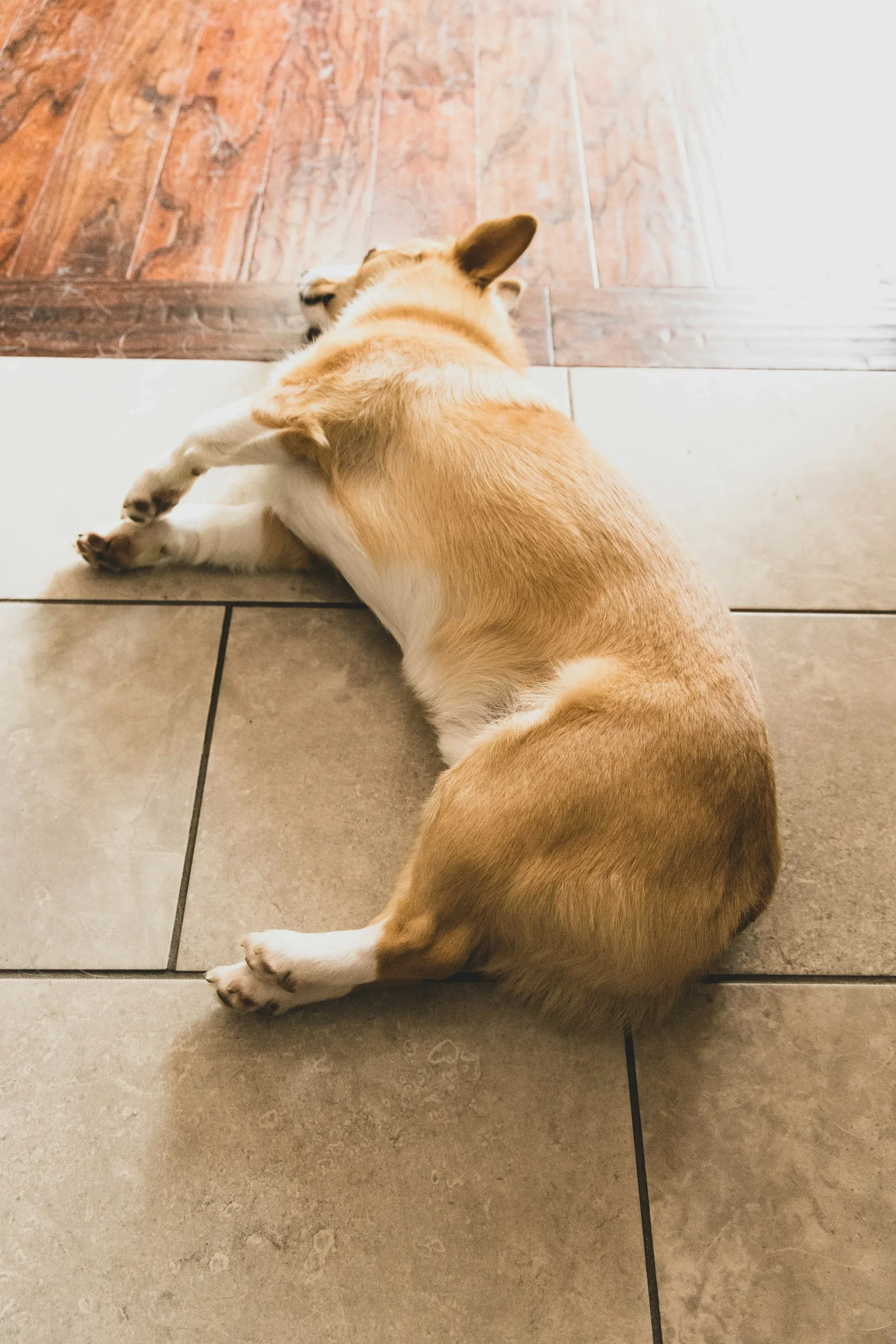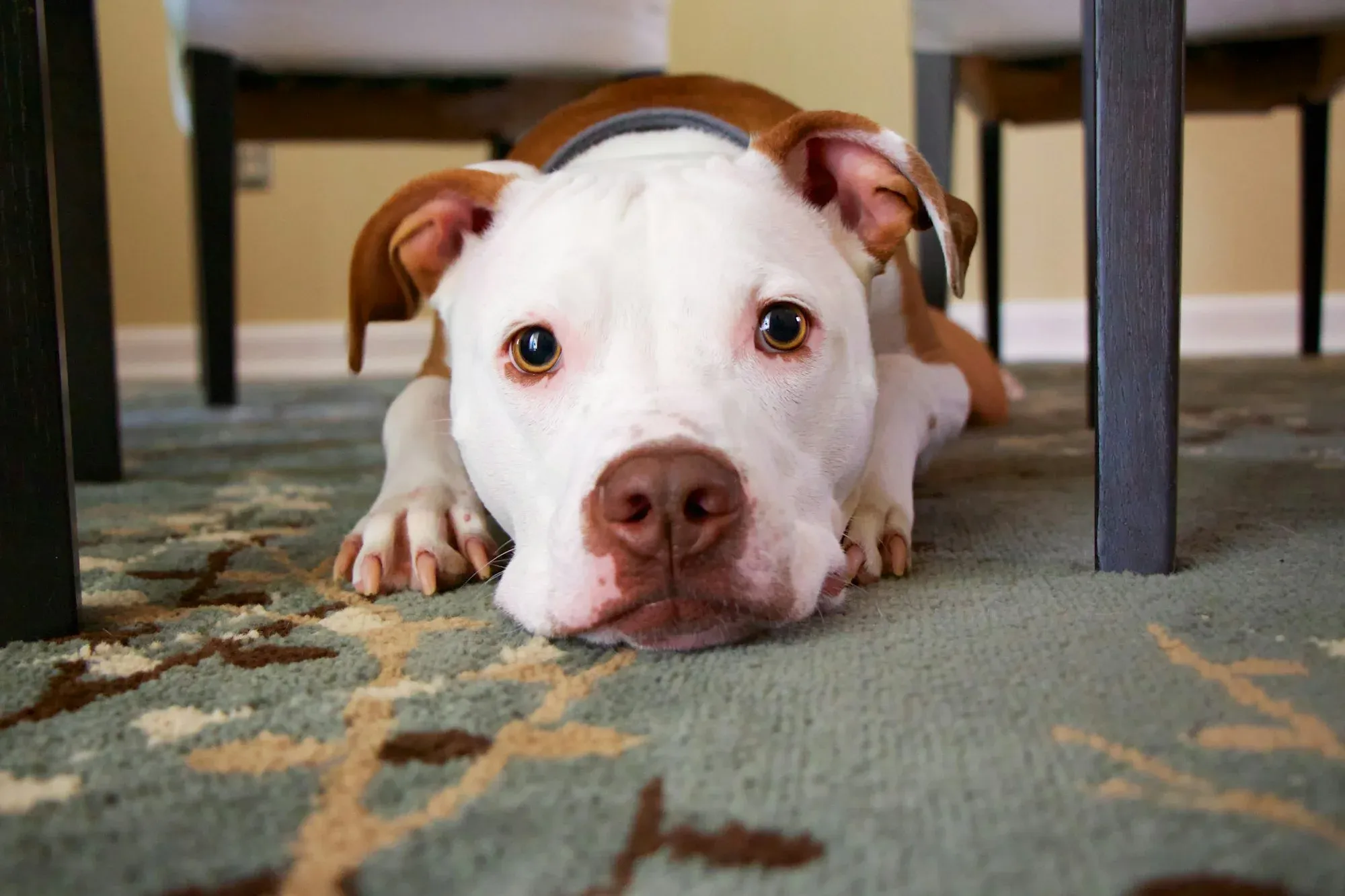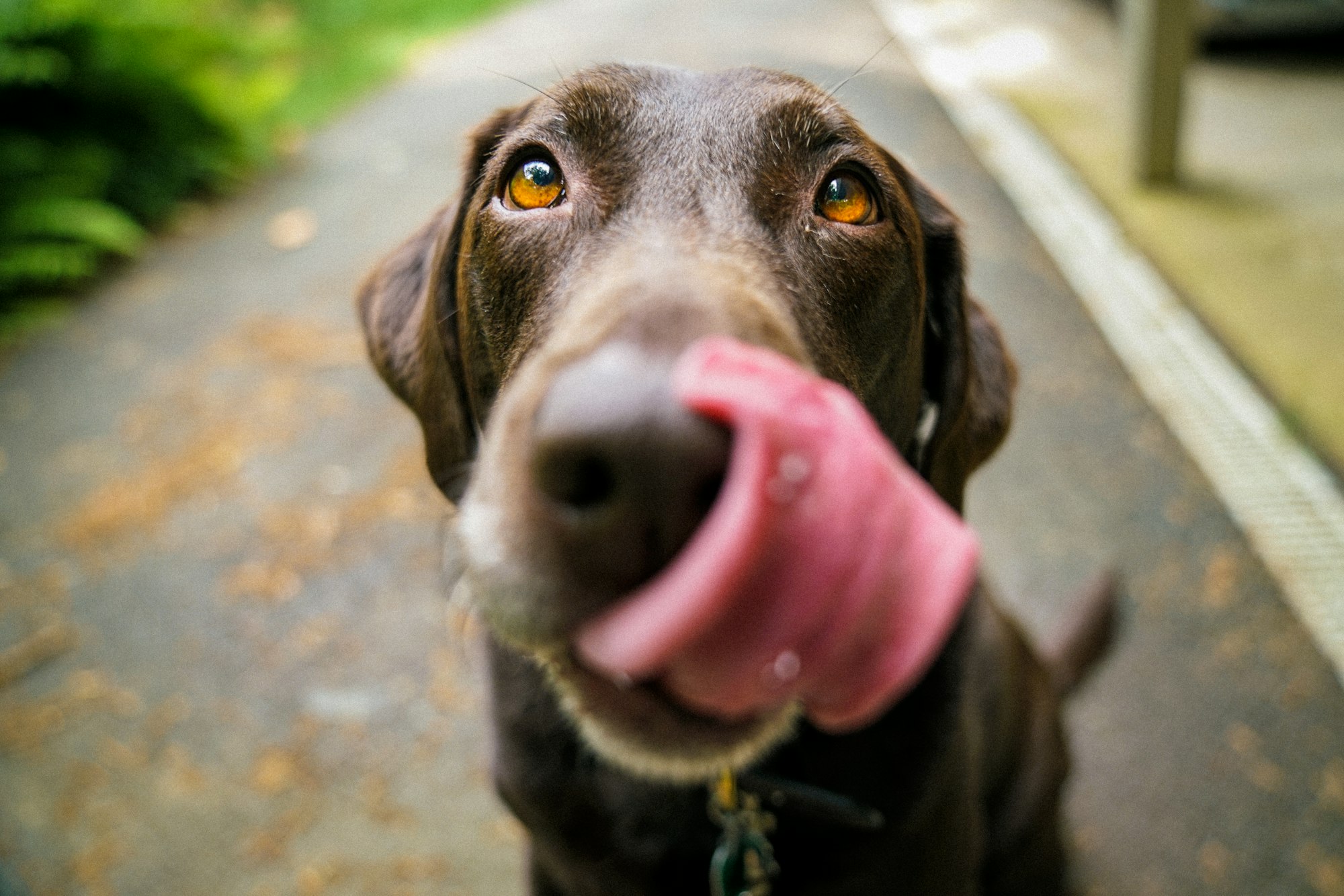Let's face it, having a gassy dog is no walk in the park. In fact, it's more like a sprint to the nearest open window. Your furry friend may be adorable, but those silent-but-deadly emissions can clear a room faster than a fire alarm. But fear not, for we are here to uncover the causes and solutions for your dog's excessive gas. From diet to medical conditions, we'll leave no stone unturned in our quest to solve the riddle of your dog's gas. So grab a gas mask and let's dive in!
Here's Why Your Dog Farts So Much
Your dog may look innocent, but don't be fooled by those puppy-dog eyes - they could be hiding a smelly secret. So, why does your pup have excessive gas? Well, it could be a case of too much of a good thing. Dogs love food, and sometimes they love it a little too much. Overeating or eating too quickly can cause your dog to swallow air, which can lead to dog farts. It's like they say: slow and steady wins the race - or in this case, reduces the race to clear the air and stop dog farts.
Another potential culprit could be what your dog eats. Just like humans, dogs can have food intolerance or allergies to certain types of food. If your pup is constantly letting one rip, it might be worth examining their diet. Maybe that new brand of dog food wasn't such a good idea after all, or maybe they've been sneaking snacks from the garbage can. Either way, it's time to play detective and get to the bottom of this stinky mystery of why dogs fart. Because, let's face it, a farting dog may be cute in cartoons, but in real life, it's just not a gas.

Could Flatulence Be a Symptom of Another Health Issue?
Ah, the age-old question: is my dog's flatulence a sign of something more serious? While it's tempting to blame those noxious odors on your pup's love of beans and spicy foods, excessive dog gas can actually be a symptom of a health issue. For example, if your dog is suffering from gastrointestinal issues, such as irritable bowel syndrome ibs, lactose intolerant, intestinal parasites, or inflammatory bowel disease, they may experience increased flatulence.
It's like excessive dog farting; their gut is staging its own silent but deadly rebellion. So, if you notice your dog's farts are becoming more frequent or intense, it's worth scheduling a check-up with your vet. Because let's face it, the only thing worse than a gassy dog is a gassy dog with health problems. :(
Another possible cause of your dog's chronic flatulence, could be a lack of exercise. Yes, you read that right. Your pup might just need to hit the gym to cool down the excessive farting. Without enough physical activity, dogs can become constipated, leading to a buildup of gas in their digestive system. So, next time you catch your dog breaking wind, maybe suggest going for a walk or playing a game of fetch. After all, a little fresh air and exercise never hurt anyone. Except maybe that squirrel your dog is chasing.
Looking for an easy way to keep track of your dog’s daily activity level? Fi smart dog collars make it easier than ever. These slender, smart collars feature an activity tracker that counts your pup’s steps and even gives you daily, weekly and monthly goals to meet. It’s almost like a FitBit for your dog that will help you stay on top of Fido’s fitness routine.
Change Your Dog's Diet Slowly to Avoid Farts
We all know the old adage "you are what you eat." But when it comes to your dog's intestinal tract, their pet food can also affect how much they toot. If you're looking to reduce your furry friend's flatulence, changing their diet can be a great place to start. However, it's important to make changes gradually to avoid any unpleasant side effects with a change in diet. A sudden change to a new type of food can cause digestive upset, leading to increased gas production. And let's be honest, nobody wants to live with a gassy dog - or be one.
To change your dog's diet without causing an upset stomach, start by introducing small amounts of the new food into their current diet. Over the course of a week or two, gradually increase the amount of new dog food while decreasing the old. This slow transition will allow your dog's digestive tract to adjust to the new food, reducing the chances of stinky farts. And while you're at it, keep an eye on the ingredients in your dog's food.
Some dogs may be sensitive to certain foods like protein or grains, leading to especially stinky farts. So, if your dog is particularly prone to flatulence, it might be worth considering a diet that's lower in those ingredients. Trust us, your nose will thank you and so will your dog's body.

What Ingredients Could Be Causing Dog Farts
There are several ingredients in dog food that have been known to cause more gas in dogs. One of the most common culprits is fiber. While fiber is an important part of a dog's diet, too much of it can cause digestive upset and gas. Additionally, certain types of grains such as corn, wheat, and soy are also known to cause increased and flatulence in dogs some dogs. This is because these grains can be poorly digested, leading to excessive fermentation in the gut and a higher risk of excess gas.
Protein is another potential cause of excessive farting in dogs. While dogs need protein for a healthy diet, certain types of foods high in protein can be harder to digest than others. For example, some dogs may be sensitive to proteins such as beef, lamb, or chicken, leading to increased gas production. And let's not forget about food intolerance to foods high in dairy - just like in humans, lactose intolerance can cause gas and bloating in some dogs.
It's worth noting that every dog and intestinal tract is different, and what causes flatulence in one dog may not affect another. So, if you're concerned about why your dog is farting, it's always best to consult with your veterinarian.
Why Do My Dog's Farts Stink?
When it comes to your dog's flatulence, the same factors that affect pet parents farts can also play a role in how stinky they are. Just like in humans, the smell of a dog's fart can be influenced by the food they eat. Foods that are high in sulfur, such as certain types of dog food or treats, can cause more pungent farts when they're broken down by bacteria in the gut. Additionally, certain types of protein, such as red meat, can also lead to especially stinky dog farts..
The types of bacteria present in your dog's gut can also affect the smell of a dog fart. Different breeds of dogs can have different types and amounts of gut bacteria, which can produce varying levels of odor in the digestive tract. Some types of bacteria are known to produce more sulfur-containing compounds, leading to farts that are particularly stinky.
And let's not forget about the speed of expulsion - a fast release of gas can make a dog fart much more noticeable and unpleasant, regardless of its odor. So, even if your dog's farts aren't particularly smelly, they can still be disruptive to most dogs and those around them.

What Can I Do to Reduce My Dog's Flatulence?
Below are a few simple tips that you can implement today!
Slow Down Speed Eaters
If your dog is a fast eater, they're more likely to swallow air as they gobble down their food and eat quickly. This swallowed air can lead to increased flatulence and discomfort. To slow down your dog's eating, try using a puzzle feeder, a slow feeder bowl or a lick mat.
These types of feeders require your dog to work a little harder for their food, which can help slow them down and reduce the amount of air they swallow. Another option is to split your dog's meals into smaller, more frequent feedings throughout the day. This can help with poor digestion and prevent them from inhaling their food too quickly and causing excess gas.
Staying Active
Regular exercise is not only important for your dog's overall health, but it can also help reduce flatulence. Physical activity can help keep your dog's digestive system moving, which can prevent constipation and gas buildup. Additionally, exercise can help reduce stress levels, which can also contribute to digestive issues. So, make sure your dog is getting enough daily exercise - whether it's a walk around the block, a game of fetch, a flirt pole, or a romp in the dog park.
Don't Give Your Dog Table Scraps
While it can be tempting to share your meal with your furry friend, giving them table scraps can contribute to increased flatulence. Human food can be difficult for dogs to digest, leading to gas and other digestive issues. Additionally, some human foods can be toxic to dogs, such as chocolate, onions, and garlic. So, resist the urge to share your meal with your pup and stick to feeding them a healthy, well-balanced diet that's specifically designed for their nutritional needs.
Final Thoughts
By implementing these simple changes, you can help reduce your dog's flatulence and improve their overall digestive health to reduce excessive dog farting. If you're concerned about your dog's gas production or if they're experiencing other symptoms such as diarrhea or vomiting, it's always best to consult with a veterinarian to rule out any underlying health issues.
For more helpful articles about pet-parenting tips, check out the Off Leash blog at TryFi.com.
Want to know more about TryFi.com? The Fi Dog Collar is a GPS tracking collar that not only keeps track of your dog’s location, activity levels, and sleep patterns, but it also alerts you if your dog escapes your backyard. This is the fastest way to find your dog after an escape. Try the Fi Dog Collar today!






